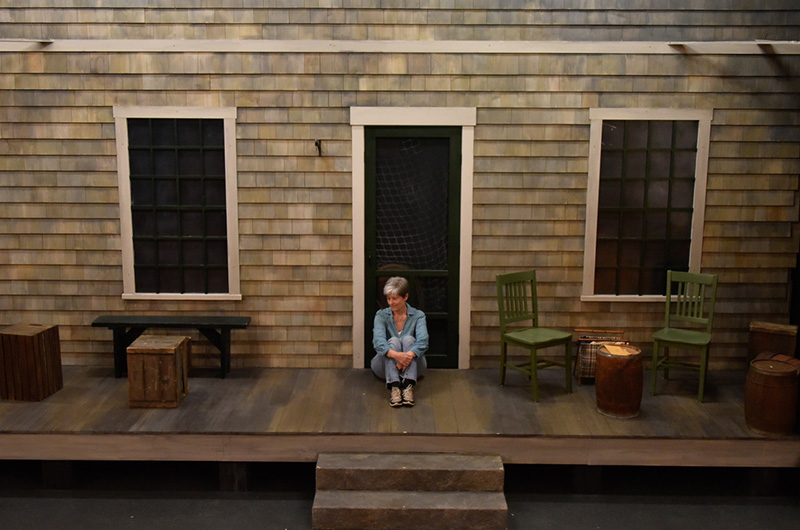In the late 1800s a genetic trait in the mostly insulated community of Chilmark resulted in an unusually high number of deaf people living there. At the time, one in 25 residents of the town were deaf. In the Squibnocket neighborhood, one in four people were deaf.
On Tuesday, the play Chilmark, written and directed by Catherine Rush, opened at the Martha’s Vineyard Playhouse. It is set in 1885 and explores issues of community through the lens of Chilmark’s deaf community during a time of extreme change.
Islanders being Islanders, the community adapted, developing its own sign language so that hearing people and deaf people could communicate with each other. It was this rich period in Island history that attracted Ms. Rush to tackle the subject for the theatre, something she first explored in a 2007 production of This Island Alone, co-written with her husband Adrian Blue who is deaf.
“I wanted to set it at a time when things were changing,” Ms. Rush said “There were a lot of things changing in the education of the deaf. There was the end of the whaling industry. Steel and oil and all those things were changing America. So it seemed like a seminal time in American history to set the play.”
It is a story of conflict, how a tight knit community was split apart by changes in the world around them.

“Everybody helped each other and knew each other, and did what they could for each other,” Ms. Rush said. “Then someone comes from off-Island and disrupts all that, with a single question. That question divides the entire community. I like to think of it as the very first time that a community realizes there’s a them and us, or an other in the community.
Two of the actors in the five person company are deaf. Ms. Rush is fluent in American Sign Language. Still there were challenges in rehearsing and production, and it will be a different theatre experience for the audience.
“Every piece of information that you need to know is also spoken, but there are moments in silence where the deaf characters are signing, you can probably pick up some of it, but you won’t miss any of the story,” Ms. Rush said. “All of the hearing actors sign and speak at the same time, which was what happened on the Vineyard, at the time.”
It is a most difficult assignment for the hearing actors in the company. American Sign Language is not a written language, and it doesn’t always translate well to the spoken word. Ms. Rush offered an example of how the two languages differ, and how the actors have to integrate the differences simultaneously.
She said the sentence, “Should we go to the movies tomorrow,” would be translated in sign language as the signs for “tomorrow, movies, go, us.”
“It’s really, really hard for those actors to sign and speak at the same time,” Ms. Rush said.
The writer and director of the play said she hopes people will take away two things from watching the play.
“One is to really want to learn American Sign Language. I want them to have their interest piqued to the point where they go, I want to learn that.
“The other is to have a deeper understanding of how the history of the deaf has progressed since then. We look at the deaf community as a small minority. Outsiders have a lot of opinions about it. But how did they get there, like any, and I don’t use this term lightly, oppressed minority feels when they’ve been forced to accept certain things they don’t want.”
She said she has felt great support during her time on the Island preparing the work for its premier at the Martha’s Vineyard Playhouse, and she said she couldn’t ask for a better cast.
“Islanders are very proud of their history. I think this is a moment in time when the Island shows its strength in its sense of community, and its pride in its community, and its love of each other,” Ms. Rush said. “I love that about islands. There’s an island mentality of we help each other, us against the world kind of thing, because you’re an island. I think that’s something that should be celebrated by the Martha’s Vineyard community with this play. I think it will ring true in many ways. I hope so.”
Chilmark runs through Sept. 8 at the Martha’s Vineyard Playhouse. Shows are Tuesdays through Saturdays, beginning at 7:30 p.m. Visit mvplayhouse.org.







Comments (2)
Comments
Comment policy »